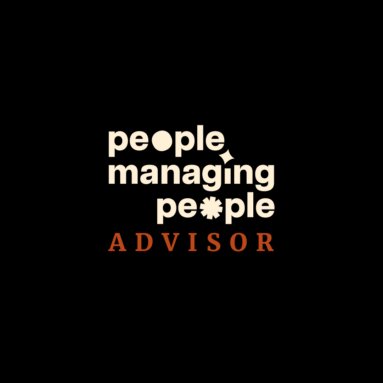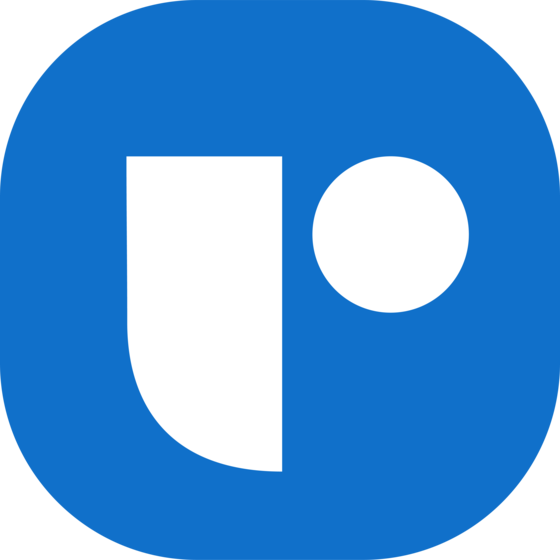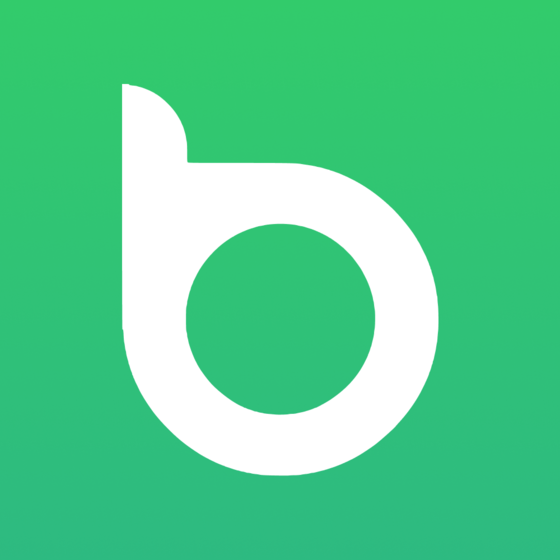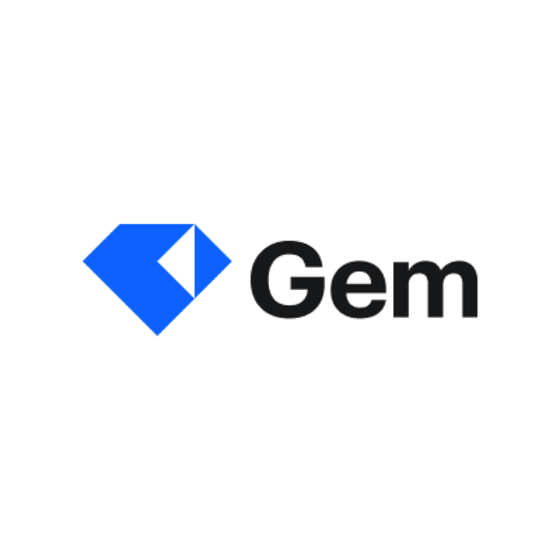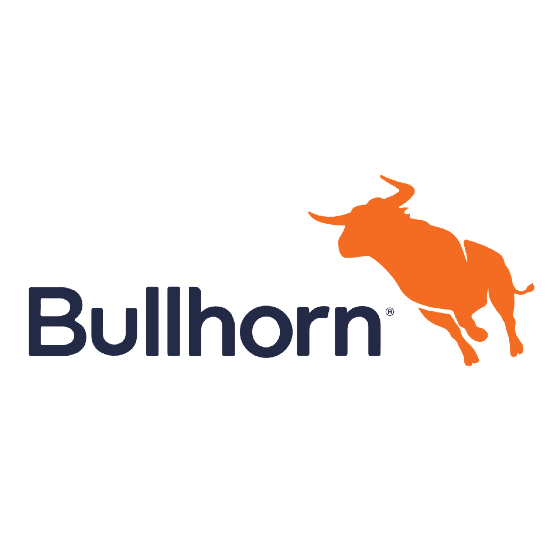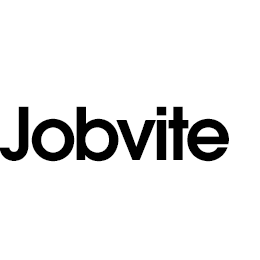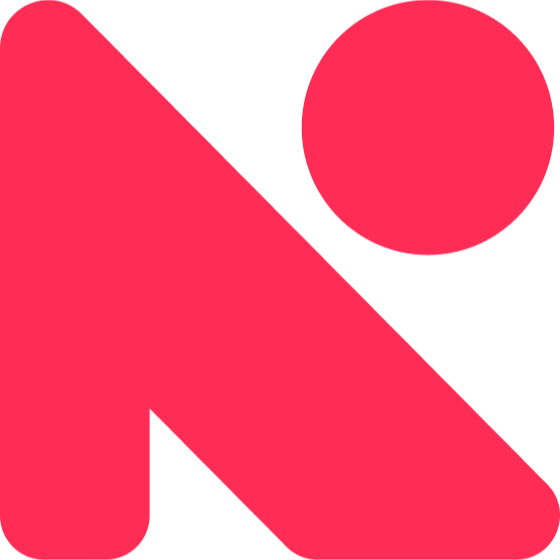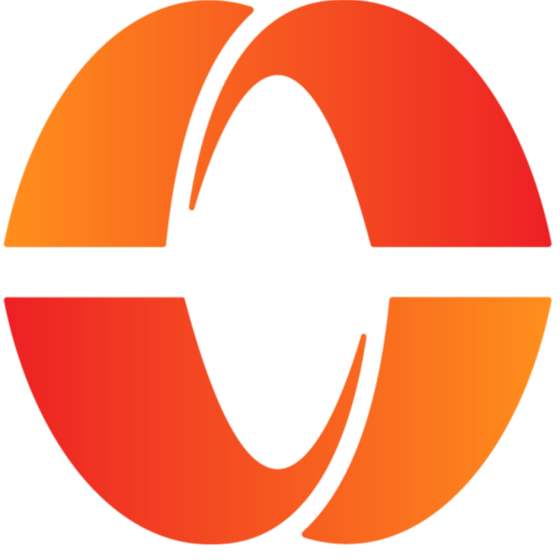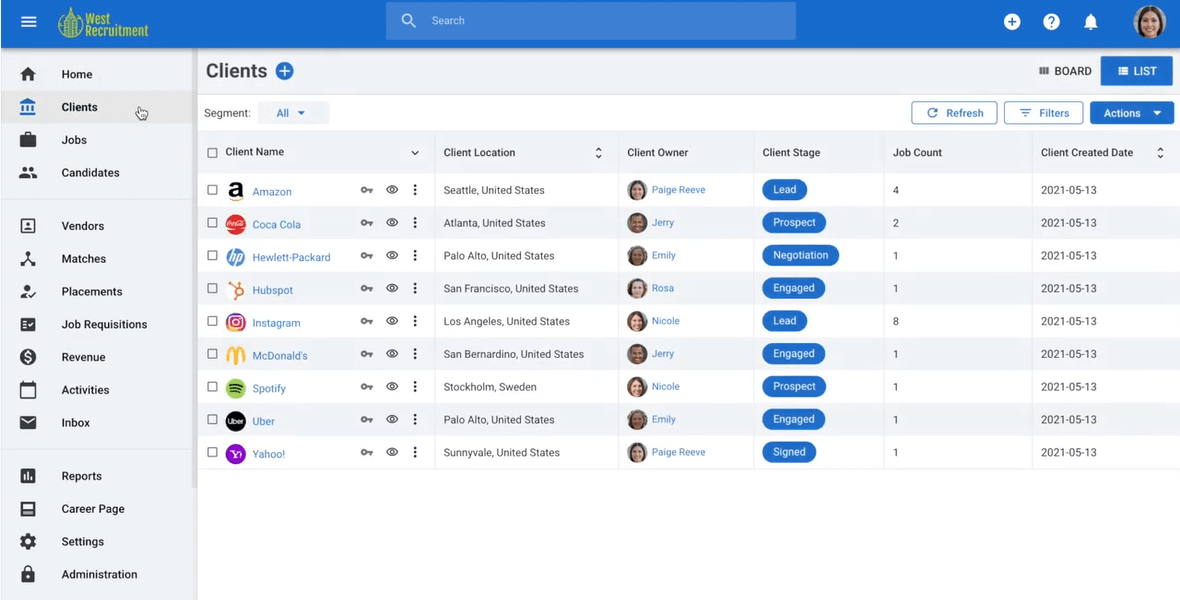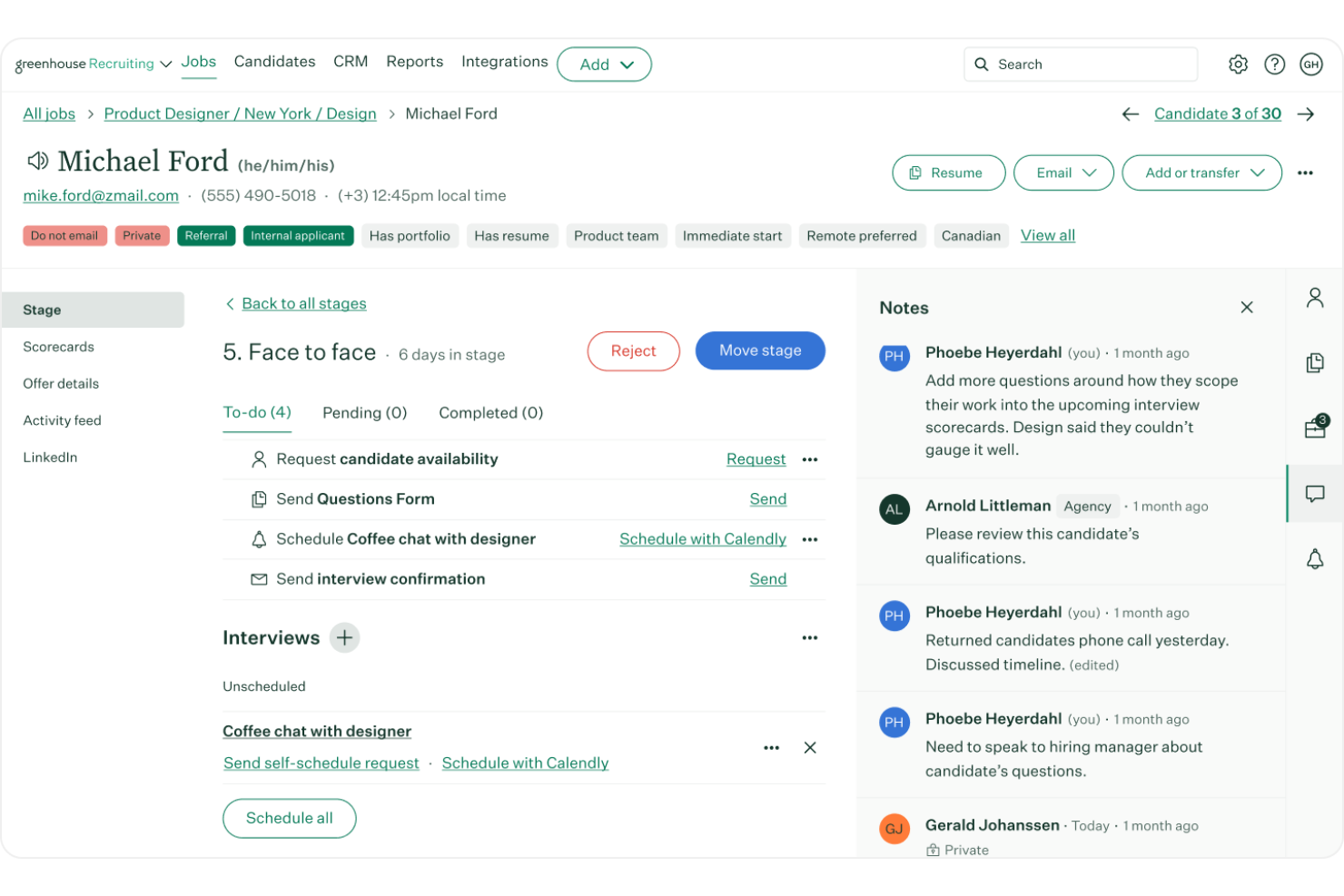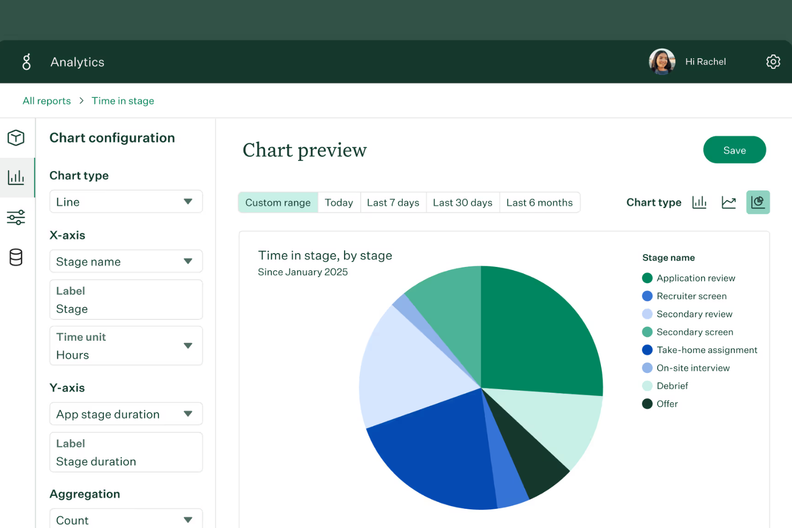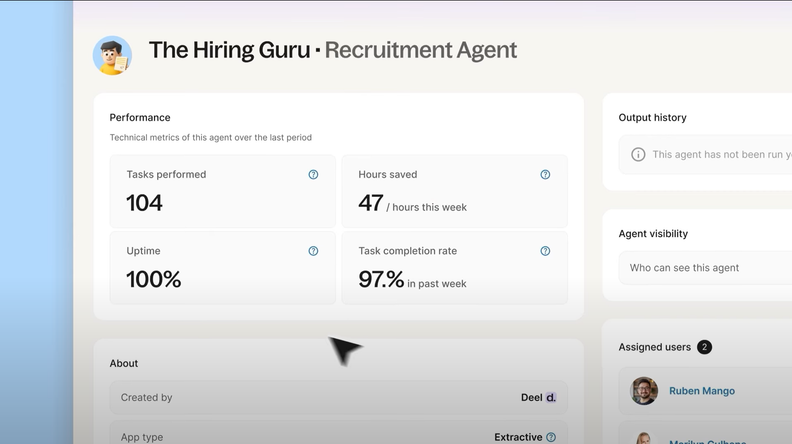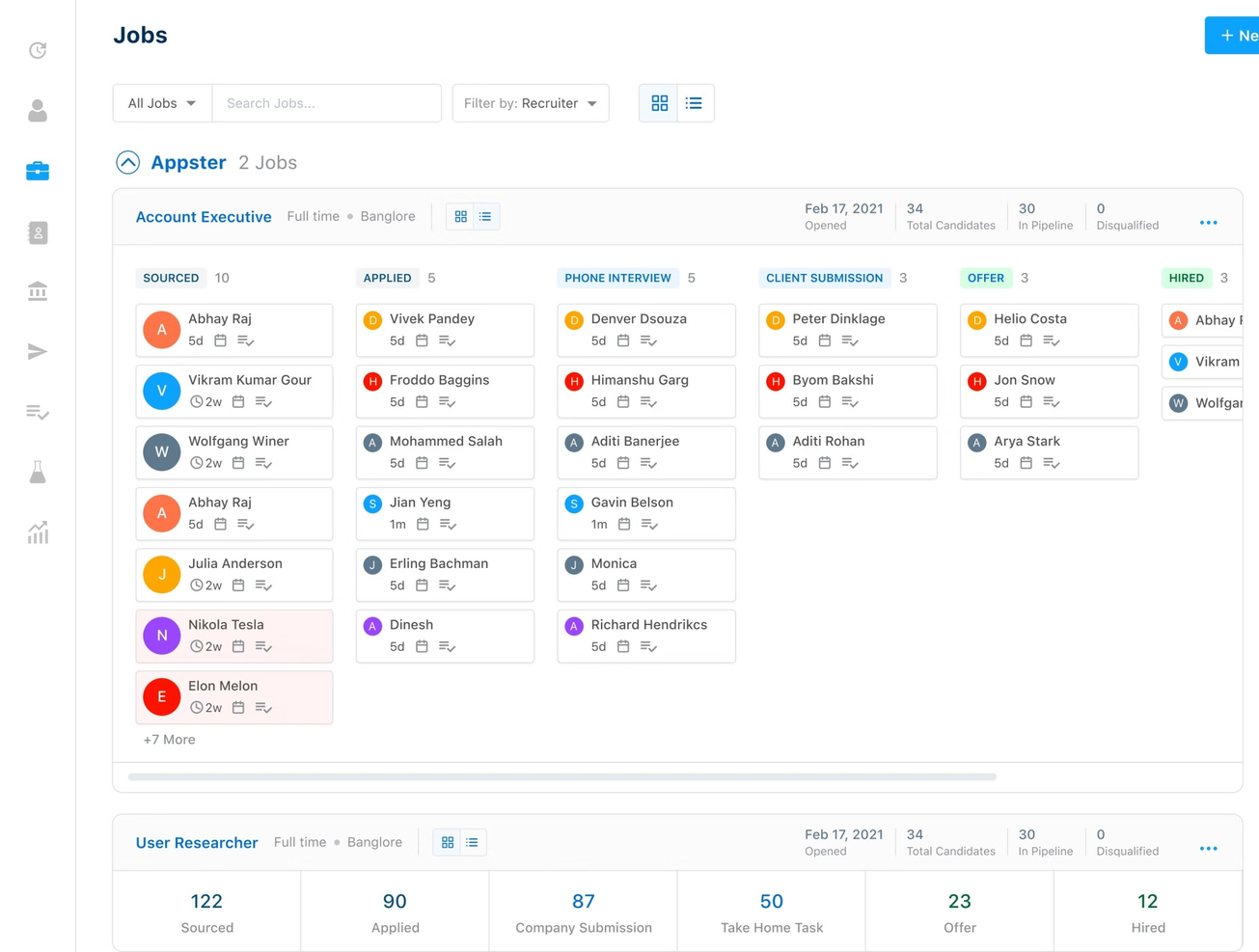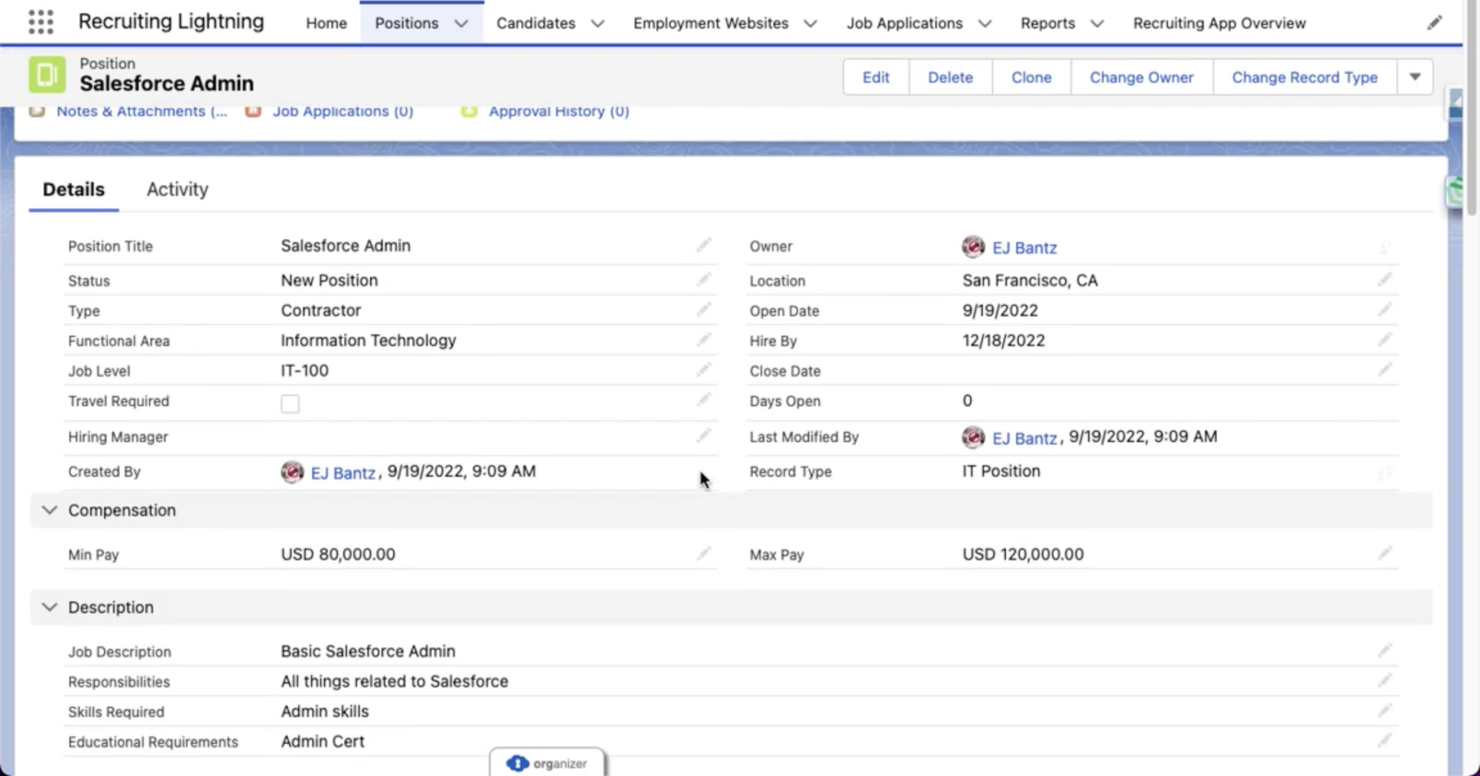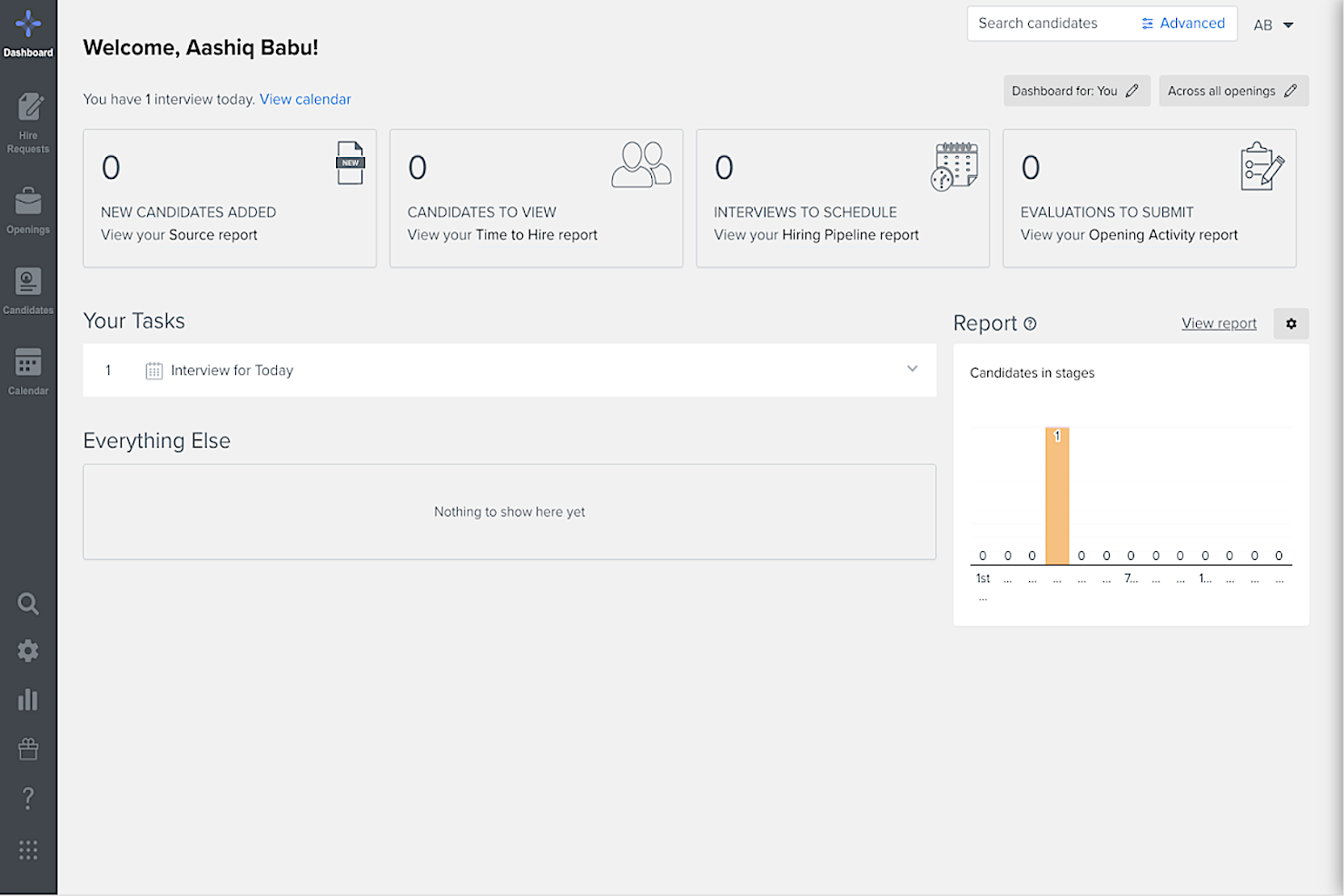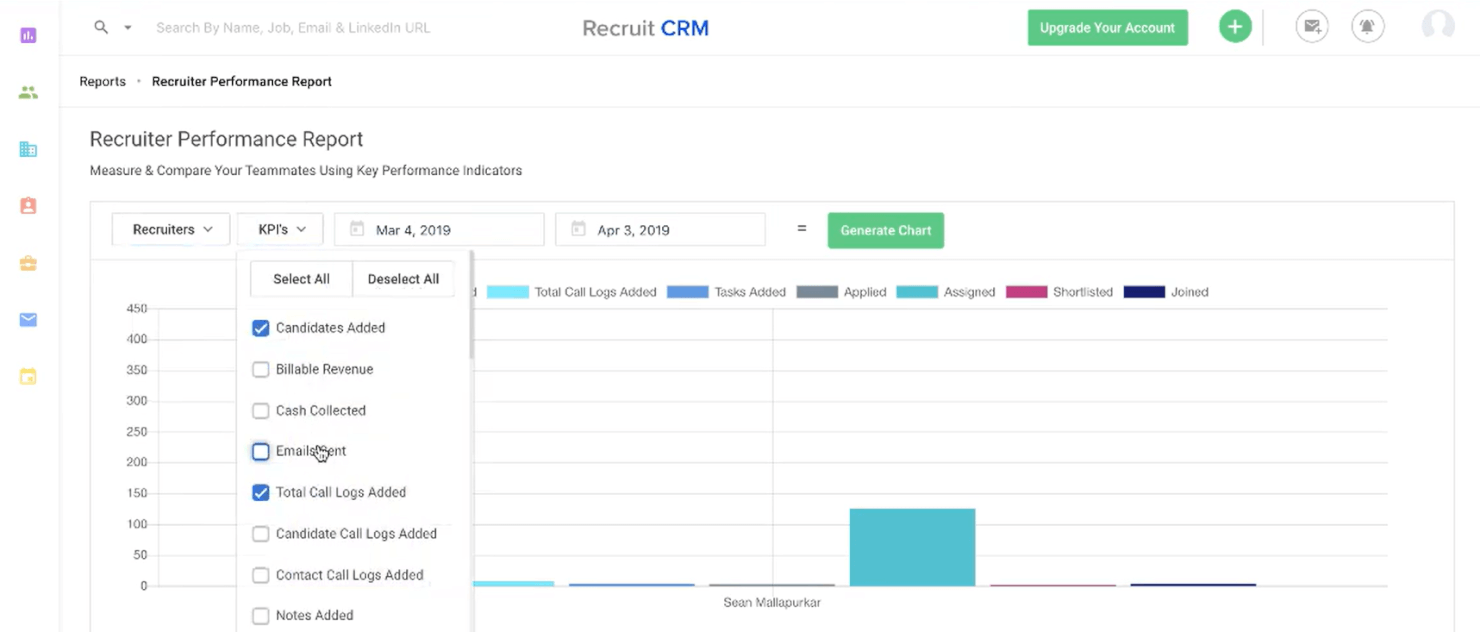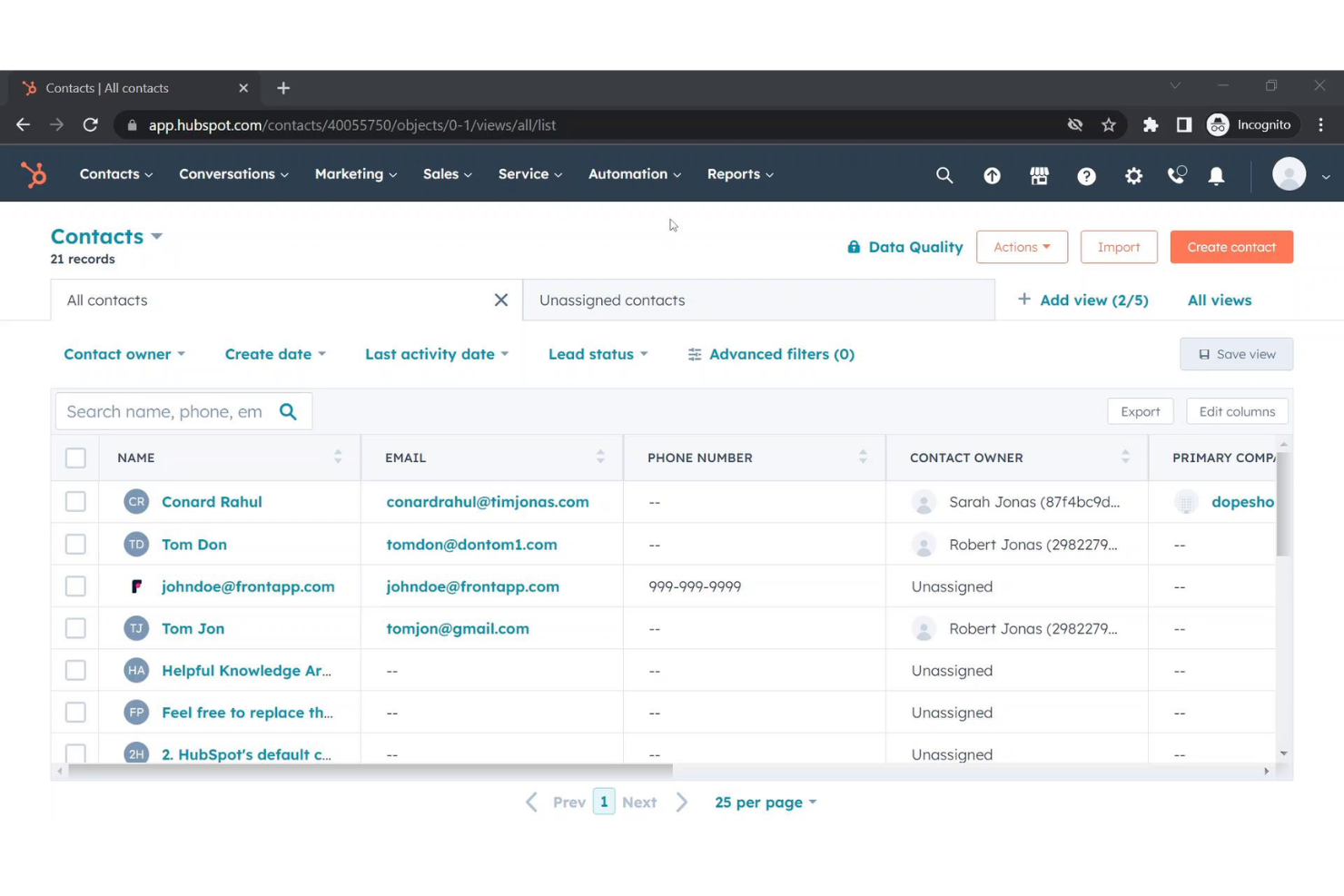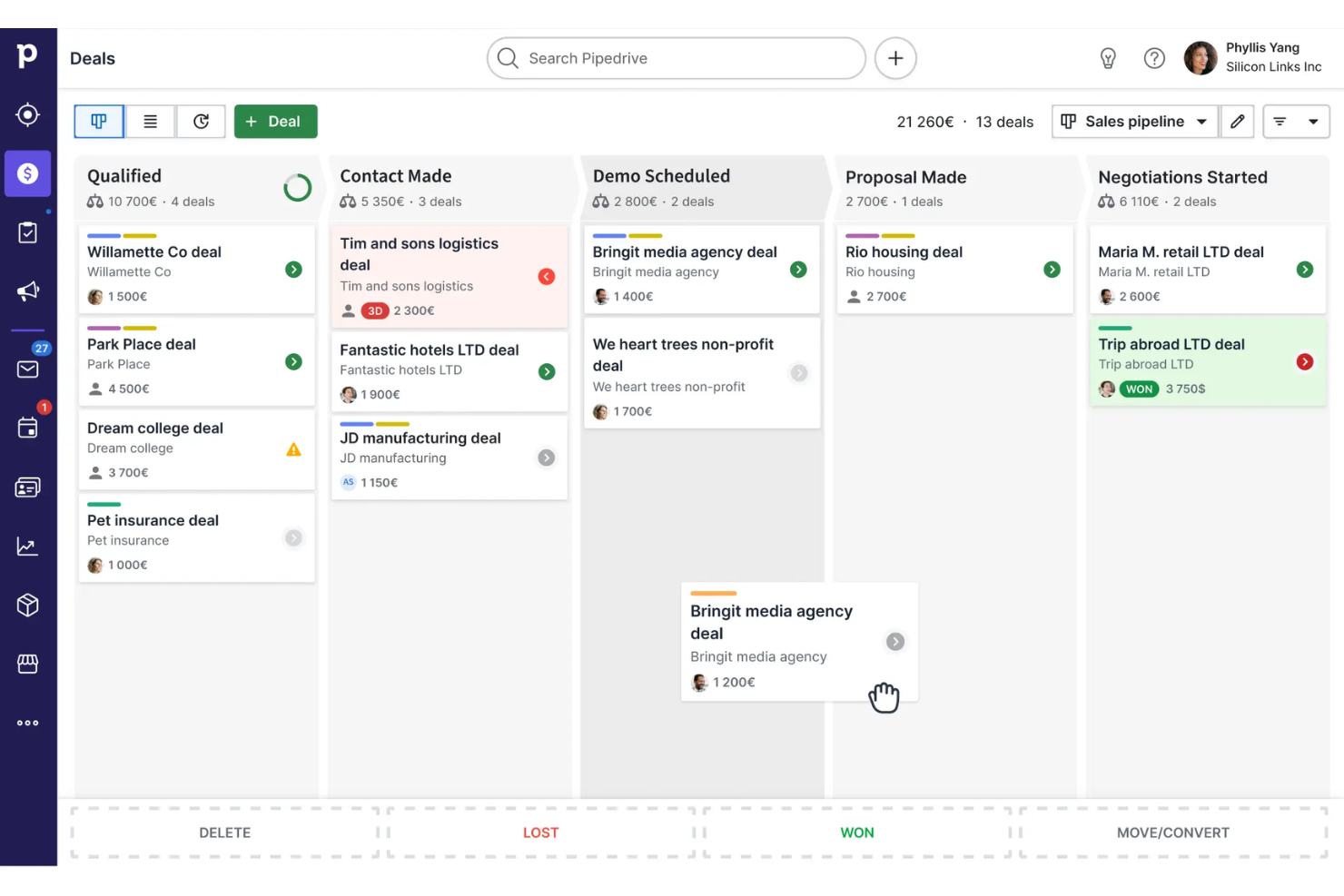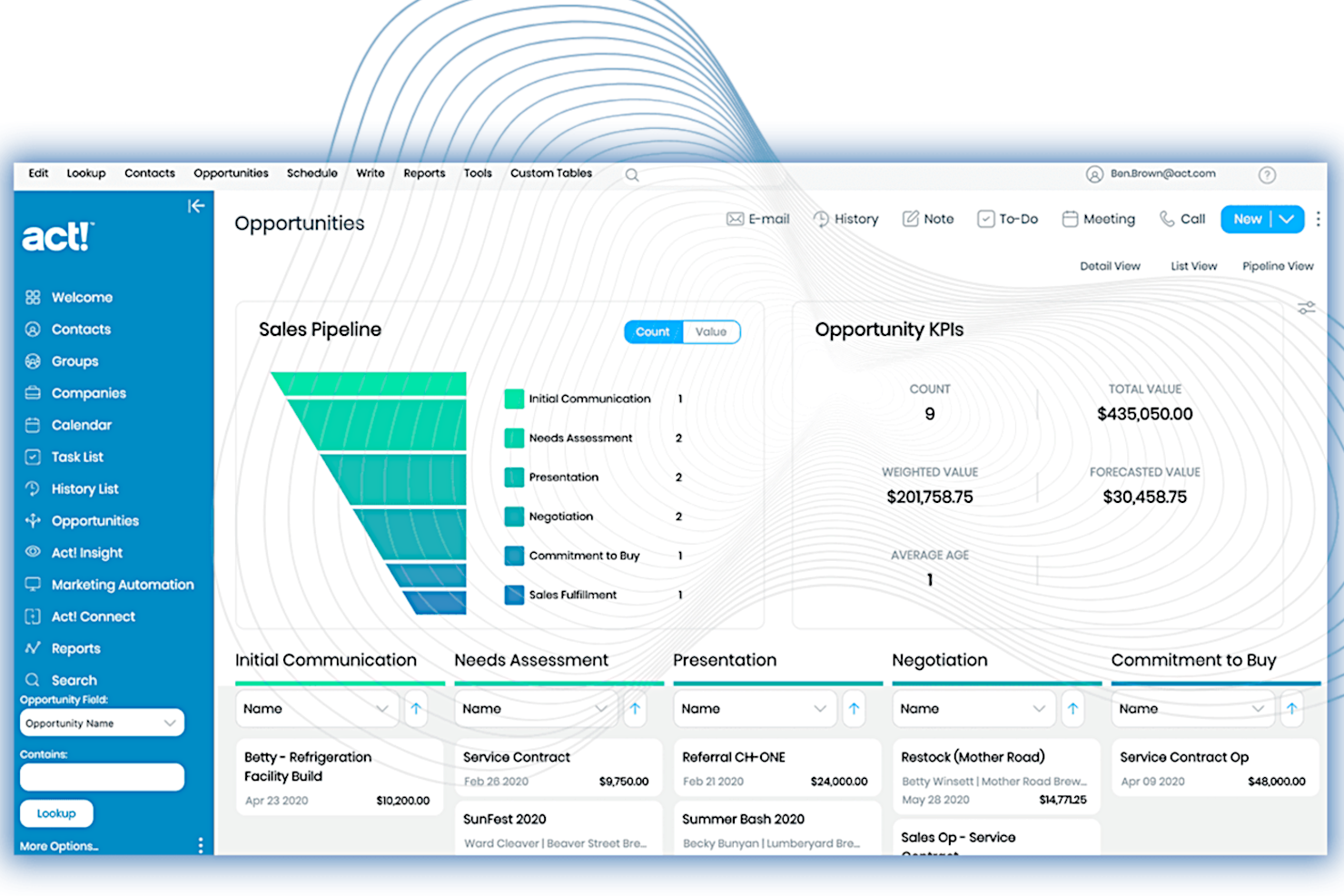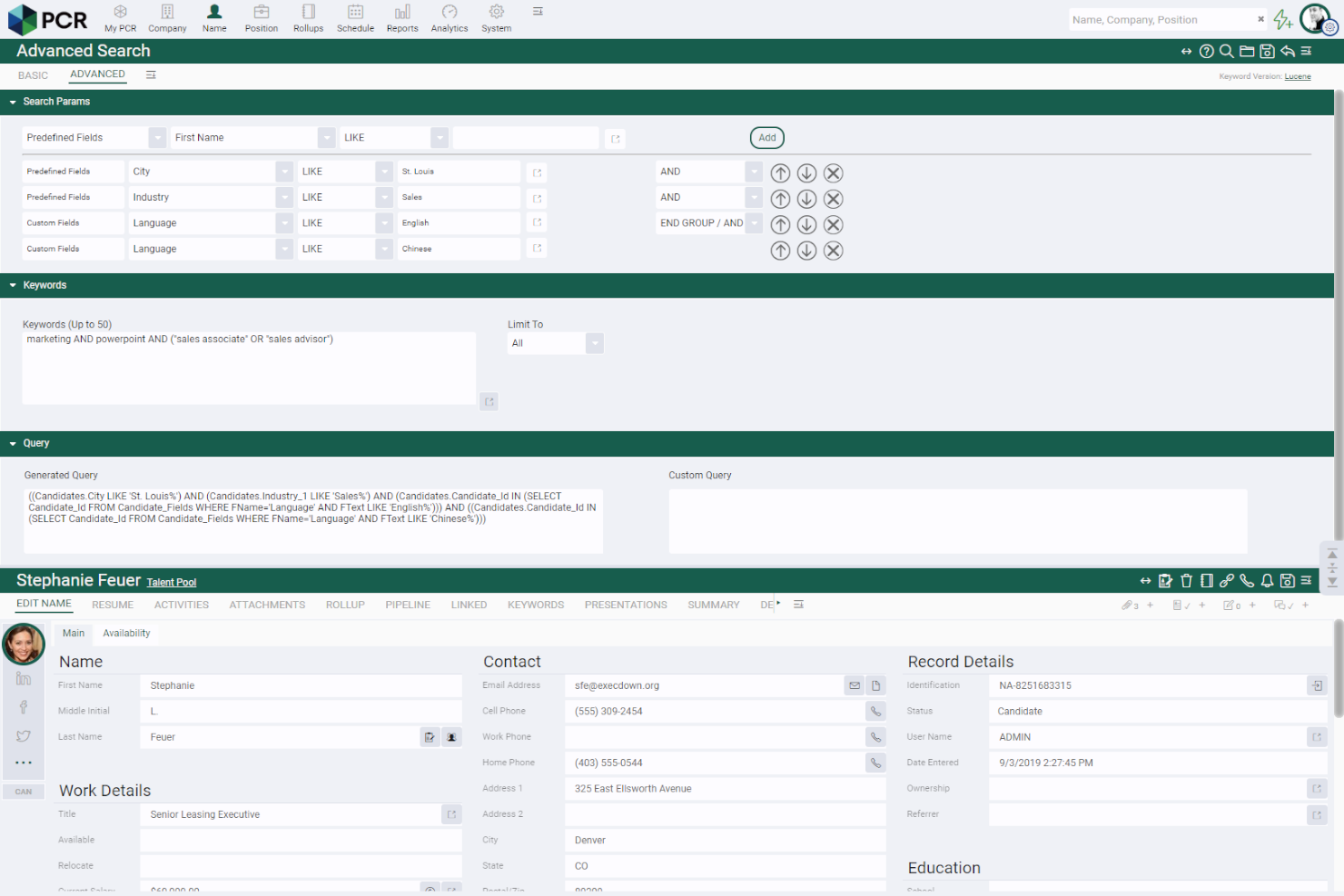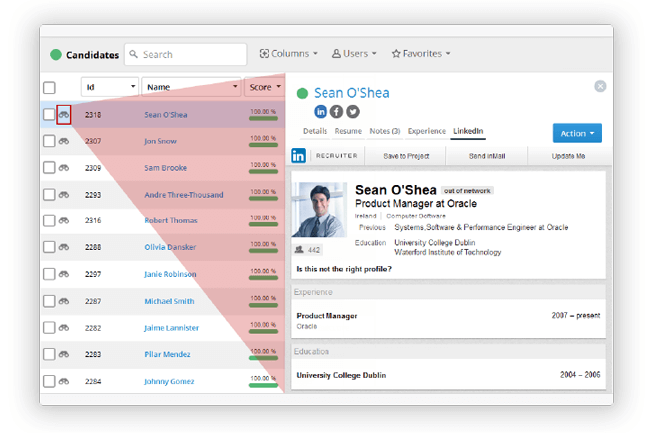20 Best Recruiting CRM Software Shortlist
After reviewing many different options, here’s my shortlist of the 20 best recruiting CRM systems I’ve covered in detail out of the 37 options I’ve included in total:
Recruiting marketing is fundamental to attracting the right talent to your roles and creating a more efficient hiring process.
Modern recruiting CRM software will help you in your efforts to source top-quality candidates, create your own talent pool for future roles, and deliver tailored marketing campaigns to keep potential candidates engaged and aware of your roles.
If you're a recruitment firm, they can also help you find and management clients and monitor your sales pipeline.
Sounds good, right? Now it's just a process of choosing the right solution for your needs.
In this post, I'll help you simplify the selection process by sharing my insights on the top recruiting CRM software based on my personal recruiting experience using these systems.
Why Trust Our Software Reviews
We've been testing and reviewing recruiting software since 2019. As HR professionals ourselves, we know how critical and difficult it is to make the right decision when selecting software.
We invest in deep research to help our audience make better software purchasing decisions. We've tested more than 2,000 tools for different HR use causes and written over 1,000 comprehensive software reviews. Learn how we stay transparent, and take a look at our software review methodology.
Best Recruiting CRM Software: Pricing Comparison Chart
This comparison chart summarizes pricing details for my top recruiting CRM software selections to help you find the best software for your budget and business needs.
| Tool | Best For | Trial Info | Price | ||
|---|---|---|---|---|---|
| 1 | Best for recruiting analysis for multiple clients | 14-day free trial | From $15/user/month | Website | |
| 2 | Best for collaborative hiring decisions | Free demo available | Pricing upon request | Website | |
| 3 | Best for global agency-sourced hiring | Free trial + demo available | From $29/month | Website | |
| 4 | Best end-to-end recruiting for staffing agencies | 14-day free trial + free demo | From $99/user/month | Website | |
| 5 | Best for real-time data capabilities | 14-day free trial | From $25/user/month (billed annually) | Website | |
| 6 | Best for end-to-end employee lifecycle management | Free demo available | Pricing upon request | Website | |
| 7 | Best for pipeline visualization | Free trial available | From $84/user/month | Website | |
| 8 | Best multi-purpose CRM software | Free plan available | From $15/user/month (billed annually) | Website | |
| 9 | Best for AI-driven candidate engagement | Free demo available | Pricing upon request | Website | |
| 10 | Best for structured applicant tracking | 14-day free trial | From $14/user/month (billed annually) | Website | |
| 11 | Best for AI-driven referrals | Free demo available | Pricing upon request | Website | |
| 12 | Best for offline and mobile access | 14-day free trial | From $30/user/month (billed annually) | Website | |
| 13 | Best for nurturing candidates through the pipeline | Free plan available (under 15 employees) | Pricing upon request | Website | |
| 14 | Best for AI-driven candidate scoring | 21-day free trial | From $9/user/month (billed annually) | Website | |
| 15 | Best for human-powered hiring support | Free demo available | From $249/month | Website | |
| 16 | Best for detailed candidate profiles | Free demo available | From $85/user/month | Website | |
| 17 | Best with a LinkedIn integration | Free demo available | Pricing upon request | Website | |
| 18 | Best for diversity sourcing tools | Free demo available | From $549/user/month | Website | |
| 19 | Best for filling hourly positions | Free demo available | Pricing upon request | Website | |
| 20 | Best for video interviews and candidate engagement | Free demo available | Pricing upon request | Website |
-

Native Teams
Visit WebsiteThis is an aggregated rating for this tool including ratings from Crozdesk users and ratings from other sites.4.9 -

Rippling
Visit WebsiteThis is an aggregated rating for this tool including ratings from Crozdesk users and ratings from other sites.4.8 -

Paylocity
Visit WebsiteThis is an aggregated rating for this tool including ratings from Crozdesk users and ratings from other sites.4.5
Best Recruiting CRM Software Reviews
Here are my detailed summaries of the best recruitment CRM software that made it into my top 20 list, including notes on why I picked them. Each review offers a detailed look at the key features, integrations, and ideal use cases of each system to help you find the best tool for you.
Manatal’s all-in-one recruitment CRM & ATS simplifies the recruitment process through job portal integrations, easy-to-manage talent pipelines, and AI-driven candidate recommendations.
Why I picked Manatal: Their comprehensive CRM feature can help with recruitment analysis, finding and managing candidates and clients, streamlining communications, enabling better collaboration between hiring teams and clients, and even revenue tracking and reporting.
Manatal Standout Features and Integrations:
Standout features include their Chrome extension for LinkedIn that makes it quick to import leads from LinkedIn into the CRM and their instant lead discovery tool for quickly connecting with potential clients and partners.
Integrations include Office 365, Microsoft Outlook, LinkedIn, Gmail, Facebook, WhatsApp, Mailchimp, Zapier, and other platforms. They also have an open API to support additional custom integrations, plus a full-feature app for mobile recruiting.
Greenhouse is a recruiting CRM designed to help your team find and hire the best talent more efficiently. It offers tools that guide you through the entire hiring process, from sourcing candidates to managing interviews and offers.
Why I picked Greenhouse: One of the key reasons Greenhouse works well as a recruiting CRM is its ability to manage candidate relationships throughout the hiring journey. With Greenhouse, you can easily track where each candidate is in the pipeline, send automated follow-ups, and maintain detailed notes on every interaction.
Greenhouse also offers strong collaboration tools for your recruiting team. You can assign tasks, share feedback, and collaborate on hiring decisions all within the platform. Additionally, Greenhouse integrates with job boards and other recruiting tools, so your team can post job openings, manage applications, and source talent without jumping between different systems.
Greenhouse Standout Features and Integrations:
Features include candidate scorecards, structured interviewing, hiring analytics, customizable workflows, job post templates, mobile recruiting, offer management, interview kits, sourcing automation, and diversity and inclusion tools.
Integrations include over 500 tools like BambooHR, BrightHire, Calendly, Checkr, DocuSign, GoodTime, Sterling, Starred, and Spark Hire.
New Product Updates from Greenhouse
Greenhouse's New Analytics, Real Talent™, AI scheduling, and Onboarding
Greenhouse rolled out four major improvements to help you hire smarter and faster: a revamped analytics platform, Real Talent™ fraud detection and AI matching, AI-powered interview scheduling, and dynamic onboarding enhancements. Each update boosts insights, candidate quality, coordination, and new-hire setup. Visit Greenhouse's website for more.
Deel is a platform designed to help teams source and manage global talent from a single workspace. It connects companies with top staffing agencies, allowing them to create job postings, review candidate submissions, and onboard hires without switching tools.
Why I picked Deel: I picked Deel because it lets you manage staffing agency relationships, job requisitions, and candidate submissions all in one place. You can create detailed requisitions and start reviewing CVs from vetted agencies quickly. Deel also gives you performance insights on each partner, showing applicant volume, time-to-hire, and spend. This makes it easier to track what’s working and improve your recruiting process over time. Everything stays centralized, so you’re not bouncing between tools or inboxes.
Deel Standout Features and Integrations:
Features include a requisition builder, candidate review dashboard, agency performance tracking, document sharing, compliance automation, job spec uploads, requisition-level customization, international hiring support, onboarding workflows, recruiter collaboration tools, in-platform messaging, and global support access.
Integrations include Hubstaff, QuickBooks, Slack, Google Workspace, JIRA, Brex, Expensify, NetSuite, BambooHR, Skovik, Workday, and Xero.
New Product Updates from Deel
Introducing Deel AI Workforce
Deel has launched the AI Workforce, a set of specialized agents designed to handle repetitive HR, payroll, and compliance tasks with speed and accuracy. These AI agents don’t just assist—they execute tasks from start to finish. For more information, visit Deel's official site.
Recruiterflow is an applicant tracking & recruiting CRM software purpose built for recruitment agencies but is also popular amongst in-house teams.
Why I picked Recruiterflow: Built with recruitment agencies in mind, their CRM comes complete with heaps of automations to help busy teams land deals and grow client relationships. It's highly customizable to suit your processes, and it of course syncs well with the ATS feature.
Recruiterflow Standout Features and Integrations:
Standout features include their Kanban-style deal pipeline that automatically updates contact details, triggers email notifications, and assigns tasks to team members to help close deals faster and a fully branded client portal to help collaborate with and service clients.
Integrations are available with popular job boards and Zapier. You can also build your own custom apps or set up additional software integrations using their open APIs.
New Product Updates from Recruiterflow
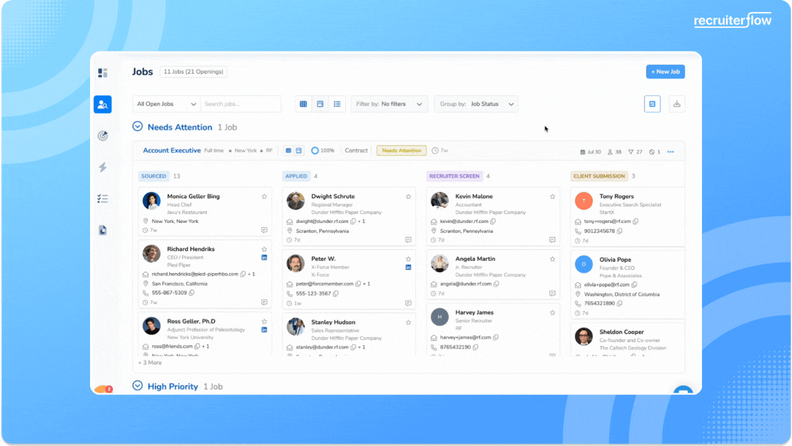
Recruiterflow's New AI Candidate Agent & Customization Features
Recruiterflow's June 2025 update includes an AI-powered Candidate Submission Agent, customizable job-specific fields, custom job close reasons, and client portal visibility control. More details at Recruiterflow Blog.
Salesforce offers a comprehensive CRM solution to help connect recruiters, talent and clients and increase placement velocity.
Why I chose Salesforce CRM: Salesforce's CRM integrates AI and automation to streamline recruitment processes, enabling agencies to focus on sourcing and placing top talent. Its real-time data capabilities facilitate personalized experiences for both candidates and clients, ensuring optimal matches and improved engagement.
Salesforce Standout Features and Integrations:
Standout features include automated by highly personalized client and candidate communication based on real-time data, the ability to generate concise summaries of sales calls, and real-time predictions to guide sellers to close deals, automate sales process, and build stronger relationships.
Integrates with Salesforce's suite of products, including Sales Cloud, Service Cloud, Marketing Cloud, Data Cloud, Tableau, and Slack and third-party applications and job boards, facilitated through Salesforce's robust API ecosystem.
New Product Updates from Salesforce CRM
Salesforce CRM boosts video streaming & data security
This release brings VP9 with SVC for sharper, more efficient video streaming and a Beta Identity Insights API for real-time phone intelligence to curb fraud and enrich data. Visit Salesforce CRM’s website for more.
Mitratech Perform is a recruiting CRM software that gives organizations access to a large talent pool and facilitates communication with potential candidates throughout the hiring process. It helps HR teams quickly identify and analyze top talent, streamline their recruiting operations, and make more informed hiring decisions.
Why I picked Mitratech Perform: The software has an intuitive interface where recruiters and hiring managers can collaborate on resumes and track progress throughout recruitment, from initial outreach all the way through to new employee onboarding and talent management.
Users can search through hundreds of profiles to identify the best candidates for any given role, with filtering options like location, experience level, and education level, and candidate searches can be saved for quick future access.
Mitratech Perform Standout Features and Integrations:
Standout features include built-in communication tools such as email templates and automated notifications to help recruiters stay connected with their candidates and provide timely updates on job openings and other opportunities within the organization.
The software also offers powerful analytics capabilities with detailed reports on candidate performance metrics like time spent in interviews or tests taken by applicants. This helps recruiters better understand who will be successful in various roles based on data rather than opinion alone, ensuring that only qualified individuals are hired or promoted within their organization.
Integrations include Indeed, Slack, Google Workspace, Zoom, Office365, and PandaDoc.
Recruit CRM combines the functionalities of a CRM with an ATS (applicant tracking system), making it an excellent choice for high-volume recruiters or recruitment agencies.
Why I picked Recruit CRM: Their user interface is intuitive and includes a kanban style view that visually organizes all the prospective candidates in your hiring pipeline with separate columns for whichever recruitment phase they’re in. Moving them along in the pipeline is also straightforward, with just a click.
To increase your productivity, you can set up triggers for automated emails and other tasks to occur once you move a candidate from one phase to the next.
Recruit CRM Standout Features and Integrations:
Features include a Chrome browser extension that simplifies candidate sourcing through LinkedIn. You can use it to tag promising candidates and add them to your general database, or to one of your active hot lists, which function as individual talent pools for each position. Once flagged, Recruit CRM automatically scans the candidate’s profile details and transfers their personal details into your system for future use.
Their suite of built-in reports is what makes Recruit CRM stand out as an asset for recruiting teams or staffing firms. You can run custom reports on all types of common recruiting metrics, or use one of their built-in reports, such as their Recruiter KPI Report, their Candidate Lifecycle Report, a Job Statistics Report, or a Client Performance Report.
Within each report, the data is visualized graphically, as well as in a table format that can be exported as a CSV file. Managers can even compare the output of recruiters side-by-side or click into the individual graph points to drill down into more nitty-gritty details.
Integrations include Gmail, Outlook, and many other systems by connecting it to a Zapier account or through their custom API.
HubSpot CRM is a multi-purpose CRM software that can be used for recruiting and other business needs, including sales, marketing, and customer service.
Why I picked HubSpot CRM: It's a highly customizable and scalable solution that can be tailored to match your recruitment process. It will help you manage marketing campaigns and track communications through a single channel and coordinate work with your whole business.
HubSpot CRM Standout Features and Integrations:
Standout features include automating key processes like candidate follow-ups, data entry, and pipeline updates as well as advanced reporting and analytics to track metrics like time-to-hire, candidate engagement, and pipeline efficiency.
Integrations include Gmail, Google Calendar, Outlook, Zapier, Google Ads, Facebook Ads, Zoom, Slack, LinkedIn Sales Navigator, Mailchimp, Google Meet, Facebook Messenger, Google Search Console, Calendly, Microsoft Teams, and Instagram.
Humanly is an AI recruiting platform and CRM designed to enhance the hiring process through advanced technology and integrations. By focusing on automating candidate sourcing, engagement, events, and tracking, Humanly aims to make recruitment faster and more efficient for your team.
Why I Picked Humanly: I picked Humanly for its ability to automate candidate engagement with AI-powered interactions that ensure every applicant is considered, helping maintain a diverse hiring pipeline. Its automated screening quickly filters applicants, enabling recruiters to focus on top candidates. Additionally, Humanly’s scheduling tools streamline interview coordination, reducing back-and-forth and minimizing the risk of losing talent, while seamless integration into existing processes boosts hiring speed without extra resources.
Humanly Standout Features and Integrations:
Features include AI interviewers that help assess candidates objectively and efficiently, automated candidate scraping from platforms like LinkedIn to enhance sourcing, and personalized communication to keep applicants engaged throughout the recruitment process. These features work together to improve your recruitment metrics by increasing applicant volumes and diversity within your hiring pipeline.
Integrations include Greenhouse, ICIMS, Lever, JazzHR, Dayforce, Taleo, Workday, SAP, Employ, CultureHQ, Plum, and Bryq.
Pros and cons
Pros:
- AI-powered video interviews improve candidate engagement
- Automated scheduling reduces time spent on coordination
- Personalized outreach balances automation with a human touch
Cons:
- Pricing not publicly listed
- Some features may require onboarding to fully utilize
Pipedrive CRM is a flexible platform built for sales but adaptable for recruitment. Its visual pipeline interface makes it easy to monitor candidate stages, automate follow-ups, and manage outreach from a single dashboard.
Why I picked Pipedrive CRM: Pipedrive is ideal for recruiters who want a structured approach to tracking applicants. You can tailor pipeline stages to reflect your hiring process and use automation to schedule reminders, send emails, and assign tasks. Built-in communication tools and real-time reporting make it easy to maintain candidate momentum and evaluate performance.
Pipedrive CRM Standout Features and Integrations:
Features include customizable pipelines, automated task scheduling, email templates with tracking, lead qualification tools, resume management, and AI suggestions for prioritization. Its centralized platform enables collaboration between hiring team members with shared views and comment threads.
Integrations include Zapier, PandaDoc, Leadfeeder, JustCall, LinkPort, Outfunnel, Slack, QuickBooks, Trello, Zoom, Gmail, and Microsoft Teams.
Boon is a referral-based recruiting CRM that uses artificial intelligence (AI), automation, and gamification to help companies attract candidates through employee networks. The platform turns job postings into referral opportunities, making it easier to source talent while encouraging employee participation.
Why I picked Boon: I picked Boon because it reduces the heavy administrative lift that usually comes with referral programs. By automating workflows and using an AI recommendation engine, you can focus on higher-value recruiting tasks instead of chasing down manual submissions. I also like that Boon emphasizes diversity by helping reduce bias in candidate recommendations, which can expand your hiring pool and improve inclusivity. Its community-driven approach allows you to tap into both internal teams and external networks, giving you broader reach and stronger engagement.
Boon Standout Features and Integrations:
Standout features include gamification elements like leaderboards and customizable rewards to motivate employee participation, multilingual support for global teams, and referral analytics that track campaign effectiveness so you can see what’s working.
Integrations include Lever, Greenhouse, iCIMS, Workday, BambooHR, ADP Workforce Now, Microsoft Active Directory, Google Workspace, Okta, Slack, LinkedIn, and Facebook.
Act! is an on-premise and cloud-based CRM and marketing automation platform developed by Swiftpage for small and midsize businesses. The software enables you to manage a robust central repository of information related to your clients, leads, opportunities, and prospective staff members.
Why I picked Act!: The software is available with cloud hosting or on-premise, and it’s capable of storing candidate, client, and prospect interactions, activities, contact information, and account histories. It also provides marketing and sales automation to facilitate continuous business growth with better engagement, retention, and sales.
Act! Standout Features and Integrations:
Features include centralized contact information, and automation for repetitive and time-consuming tasks, including various sales processes and the scheduling of certain marketing and recruiting tasks. This is meant to enhance productivity and operational efficiency.
The task and activity management module, in particular, can be useful in the recruiting process as it allows users to keep track of priority calls, applicant meetings, as well as daily activities and task lists to effectively manage the recruiting team’s time and effort.
Integrations include Slack, Google Contacts, Facebook, Instagram, Twitter, Eventbrite, SurveyMonkey, and others.
Gem is a recruiting CRM platform designed to enhance the entire hiring process by offering advanced tools for candidate management, sourcing, and analytics. It integrates with existing systems to provide a cohesive and efficient recruiting experience.
Why I picked Gem: I chose Gem because of its robust feature set tailored specifically for managing candidate relationships. Gem's CRM capabilities include maintaining comprehensive candidate profiles, tracking all interactions, and nurturing relationships over time through the pipeline. Its AI-powered sourcing tools also allow recruiters to find and engage with top talent across various platforms. Furthermore, the platform's analytics provide valuable insights into the effectiveness of recruitment strategies, helping teams make data-driven decisions and improve their hiring processes.
Gem Standout Features and Integrations:
Features include its branded email campaigns, which allow recruiters to send personalized and professional emails to candidates, enhancing engagement and maintaining a strong employer brand. Another impressive feature is the diversity recruiting tools that help companies track and promote diversity metrics within their hiring pipelines. Additionally, Gem offers comprehensive candidate sourcing analytics, which provides detailed insights into where the best candidates are sourced.
Integrations include LinkedIn, Greenhouse, Lever, SmartRecruiters, Jobvite, Workday, SAP SuccessFactors, Taleo, Ashby, BambooHR, and iCIMS.
Freshsales is a CRM software designed to assist businesses in identifying and engaging with high-potential leads through AI-driven lead scoring. Its capabilities in providing predictive deal insights and automating workflows cater to the needs of HR, marketing, and support teams, positioning it as a suitable option for companies aiming to efficiently prioritize customer interactions and accelerate recruitment processes.
I selected Freshsales for the 'recruiting CRM' because of its robust AI capabilities that enhance lead scoring and recruiment insights. It differentiates itself with features like AI-powered contact scoring and predictive deal insights, which are crucial for identifying and prioritizing potential candidates efficiently. I believe Freshsales is best suited for AI-driven lead scoring as it leverages artificial intelligence to not only score leads effectively but also to offer smart recommendations.
Freshsales CRM incorporates AI-powered Contact Scoring, which leverages Freddy AI to evaluate customer engagement and prioritize leads effectively. The platform also offers Predictive Deal Insights, utilizing AI to forecast and recommend actions that could increase deal closure rates. The Unified CRM Suite within Freshsales integrates sales, marketing, and support to provide a comprehensive view of the customer journey, aiming to improve collaboration and customer relationship management.
Freshsales integrates with Freshdesk for customer support, Freshchat for messaging, Freshservice for IT service management, and Freshmarketer for marketing automation. It also connects with Google Calendar, MailChimp, Segment, Zapier, Office 365, Google Apps, Slack, Facebook, LinkedIn, Jotform, Typeform, Calendly, Email Parser by Zapier, and ClickFunnels Classic to facilitate various business processes.
Wizehire is an online hiring platform designed to help small businesses attract and hire top talent more effectively.
Why I picked Wizehire: Wizehire stands out because it allows you to post job openings to over 100 job boards with a single click, expanding your reach to a larger pool of potential candidates. Its candidate dashboard enables you to filter and sort applicants based on qualifications, helping you focus on the most promising candidates. Additionally, Wizehire provides industry-specific job ad templates, ensuring your postings are tailored to attract the right talent.
Wizehire Standout Features and Integrations:
Standout features include the groundbreaking DISC+ evaluation tool that helps you to profile candidates based on a deeper understanding their strengths, communication style, and inherent potential.
Integrations include ADP Workforce Now, Checkr, Dropbox Sign, Gusto, Indeed, LinkedIn, QuickBooks, RUN Powered by ADP, Zapier, Salesforce, and HubSpot.
PCRecruiter is a CRM software that helps recruitment professionals source, track, and manage candidates throughout the hiring process. It helps users develop relationships with potential candidates, identify the best talent for open positions, and streamline communication and collaboration between team members.
Why I picked PCRecruiter: The platform lets users conduct comprehensive candidate searches based on resumes, keywords, and notes. Users can create profiles for potential candidates and track all their information in one place. This includes contact information, resumes, and responses. Users can define and automate workflows for various recruiting processes, and its drag-and-drop interface makes it easy to edit and manage candidate placements.
PCRecruiter Standout Features and Integrations:
Features include automatic job postings on popular job boards like LinkedIn, and email integrations that allow users to synchronize contacts from other systems easily.
Their sequencing feature helps users track activity and monitor progress through metrics and charts, giving insight into client and candidate engagement activities. You can also view recruitment analytics in various visual presentations, including bubble charts, line graphs, and bar charts, or generate, export, and share detailed reports with other team members.
PCRecruiter enforces standard security measures, ensuring that confidential data is always protected. Users can toggle on permissions and controls, letting them have complete control over who can access what type of documents.
Integrations are available through PCRecruiter's public API, or by connecting a paid Zapier account. They also have native integrations with Gmail, Microsoft Office, and Office 365, and a mobile app that users can access from anywhere.
Bullhorn’s recruitment CRM is designed to help recruiters manage their candidate relationships by relying on automations to create high-quality touch-points throughout the recruiting process. In tandem, their software also functions as an ATS, which makes it suitable for both individual recruiters or staffing agencies dealing with large volumes of candidates.
Why I picked Bullhorn: Their system cuts down on busywork by passively tracking all candidate communications through their integration with Gmail and Outlook. This means candidate records are automatically updated in real-time as you go about your email outreach. By automating these common admin functions, recruiters are enabled to speed up their hiring process and make placements faster.
Bullhorn Standout Features and Integrations:
Features include an integrated ATS and CRM, a reporting dashboard with configurable KPIs, candidate engagement tools, relationship intelligence tools, and a mobile recruiting app for Android or iOS mobile devices.
Recruiting teams will also appreciate Bullhorn’s full-feature integration with LinkedIn Recruiter, a go-to source for qualified candidates. From LinkedIn, you can check if a candidate’s profile is already in your system, and if not, add it with a click. And, vice versa, from within Bullhorn, you can click a candidate record to pull up their LinkedIn profile information too (as shown above).
Integrations are available with 100+ software systems through their Marketplace, including integrations with C-Suite Corp, Checkr, Crimcheck, eSkill, Indeed, Referoo, SkillCheck, SkillSurvey, Text-Em-All, Xref, and many others.
Fetcher’s recruiting tool combines AI-powered candidate sourcing capabilities with the ability to automate classic candidate engagement steps to reduce administrative time and speed up your hiring process. Recruiting teams can write customized emails for each job opening, then roll them out in a predetermined sequence to all qualified candidates. To further boost engagement and provide a great candidate experience, Fetcher makes it possible to send emails on behalf of other members of your organization, such as hiring managers or executive team members, and keep responding directly on their behalf through Fetcher’s CRM.
Fetcher’s system also includes tools to help eliminate bias from the initial candidate sourcing process and ensure your candidate pools are more diverse from the start. As well, their detailed sourcing and engagement analytics capture diversity metrics too, as well as open rates, response rates, and interview booking rates for all prospective candidates. This type of useful data makes it easy to show key stakeholders how your recruiting team is progressing towards your organization’s hiring goals.
Fetcher integrates with several applicant tracking systems including Greenhouse, Level and SmartRecruiters, as well as other productivity programs like Slack, and Google Calendar. They also have a Chrome extension to help with candidate sourcing as well.
Pricing details for Fetcher are available upon request. They also offer a free demo through their website.
TalentReef's cloud-based recruitment CRM is purpose-built for location-based, high-volume recruiting.
Why I picked TalentReef: I included TalentReef in this list because of their unique focus on sourcing candidates to fill hourly positions. This makes their software particularly well-suited for sourcing talent for businesses in the service industry, such as restaurants, retail stores, and other hourly employers that frequently hire new staff in bulk.
TalentReef Standout Features and Integrations
Standout features include their conversational AI chatbot, a text-to-apply feature, two-way texting abilities, and social recruiting tools. Recruiters can also save a lot of time by using their campaign communication features to create templated email and SMS communications for candidate interactions, allowing them to stay in touch with high volumes of candidates at scale.
Integrations are available with payroll systems, candidate assessment tools, background check providers, and learning management systems, though individual platforms are not specified.
Jobvite’s talent acquisition suite includes features that address the entire candidate sourcing and recruitment lifecycle, including systems for employee referrals, internal mobility, recruitment marketing, interviewing, volume hiring, DEI (diversity, equity & inclusion), and candidate experience tools.
Why I picked Jobvite: You can use their software to run multi-channel recruitment campaigns to connect with candidates on whichever platform they’re active on the most, then engage them regularly through personalized email and text campaigns to keep your connection warm.
Jobvite Standout Features and Integrations:
Advanced features in Jobvite’s CRM software include their AI-chatbot that manages candidate conversations for you using intelligent messaging, and their robust recruitment marketing tools that lets you separate your talent pool into smaller, more well-defined groups based on key factors like candidate location, skills, and interests, making it easier to nurture each talent pool independently.
Jobvite’s video screening and interview scheduling tools also help recruiting teams provide a positive candidate experience right from the start. Their video screening tool makes the entire candidate screening process more efficient, as it enables recruiters to cut down on their screening time by requesting video responses that candidates record at their own convenience, rather than spending hours screening candidates face-to-face.
For candidates who advance to the next round, their interview scheduling tool empowers candidates to self-schedule their interview based on remaining availability, giving them more flexibility and control to meet on their own terms.
Integrations include many popular HCM and ATS platforms, such as ICIMS, Infor, Kenexa, Oracle, PeopleSoft, Taleo, and Workday, as well as popular job board aggregator sites including Indeed, LinkedIn, and Glassdoor.
Other Recruitment CRM Software
Here are a few more worthwhile options that didn’t make the best recruiting CRM software list:
- Thryv
For candidate portals
- Eightfold
For AI-driven candidate selection processes
- JobAdder
With a competition tracking tool
- CRM Creatio
For no-code customizable recruiting workflows
- ClearCompany
For posting to multiple job boards
- Zoho Recruit
For advanced recruitment automation tools
- Tracker
For combined CRM and ATS
- Teamtailor
For automating personalized communications
- Crelate
Recruiting CRM for integrated communication tools & automations suitable for high-volume recruiting
- Cornerstone OnDemand
For internal candidate management, upward mobility and succession planning
- JazzHR
Recruiting CRM for standardizing your outreach to all qualified candidates
- Workable Recruiting
Recruiting CRM software for detailed interview scorecards
- Yello
Recruiting CRM software with tools for talent rediscovery and nurturing passive talent
- SmartRecruiters
CRM system with recruitment marketing tools & special features for recruiting events
- CEIPAL
CRM + ATS platform for SMS (text) recruiting & DEI-focused talent acquisition
- iSmartRecruit
Engagement-focused CRM software for managing candidates, clients, freelancers, vendors, and leads
- Rakuna Recruiting CRM
Recruiting CRM software for nurturing passive candidates and aggregating rich candidate profile data
- Grayscale
Recruiting CRM for high-volume recruiting, drip campaigns, and eNPS survey processes
Related HR Software Reviews
If you still haven't found what you're looking for here, check out these other related tools that we've tested and evaluated:
- HR Software
- Payroll Software
- Recruiting Software
- Employer of Record Services
- Workforce Management Software
Selection Criteria for Recruiting CRM Software
Selecting the right recruiting CRM software for you requires a thorough understanding of your current challenges and how this type of software can alleviate those problems.
My approach to choosing the best recruitment CRM systems for this list is grounded in personal experience assisting with recruiting coupled with my hands-on experience with inefficient candidate management, poor communication channels, and the inability to effectively track and engage with potential new hires.
Here’s a summary of the main selection and evaluation criteria I used to develop my list of the best recruiting CRM software for this article:
Core Recruiting CRM Software Functionalities (25% of final score): For a recruitment CRM system to land a place in my list, it needed to offer the following basic functionalities to start:
- Basic tools to manage large volumes of candidate data effectively
- The ability to source active and passive candidates from a variety of channels
- Integrated tools to search, filter, and compare candidates against specific criteria to uncover the best fit for each open role
- Career page integrations that simplify the application process for candidates
- The ability to store templates for key items like job postings, job descriptions, and many different types of emails (introductory, interview scheduling, reference check requests, etc.)
- Collaboration tools for team-based hiring needs
Additional Standout Features (25% of total score): To help me select the best recruiting CRM software out of the numerous options available, I also took note of any unique features, including:
- AI-powered matching abilities that significantly reduce the time-to-fill positions
- Unique engagement tools, such as video interviewing capabilities or automated personalized email campaigns
- Any features that help to eliminate hiring biases, such as blind screening or other DEI-focused tools
- Advanced analytics features that offer predictive insights into hiring needs
- Customization options that allow businesses to tailor the platform to their specific needs, including both corporate branding and workflow customizations
- Mobile-friendly solutions or dedicated mobile apps for Android and iOS devices
Usability (10% of total score): To evaluate the usability of each recruiting CRM software, I considered the following:
- An intuitive design and user-friendly interface that's quick to master
- A good balance between powerful features and ease of use
- User-friendly elements like visual candidate pipelines and drag-and-drop tools
- Role-based access controls that are easy to configure for different user levels
- Features specifically designed for staffing agencies who need to manage recruiting needs for multiple clients simultaneously
- The availability of software integrations with key systems like applicant tracking systems, talent management systems, digital calendars, background-checking platforms, or e-signature software
Onboarding (10% of total score): To get a sense of each software provider's customer onboarding process, I considered the following factors:
- Quick setup processes and clear guidance for first-time users, including customizable templates
- The availability of training materials such as videos, webinars, or interactive product tours
- Support for migrating data from other systems into the new platform
Customer Support (10% of total score): To evaluate the level of customer support each vendor offered, I considered the following:
- The availability of multiple support channels, including email, phone, and chat
- Whether a dedicated account manager is available for enterprise or agency-level clients
- The existence of a self-service knowledge base, FAQ repository, or other self-help resources to speed up troubleshooting
- The overall quality, responsiveness, and helpfulness of the support team during customer onboarding and post-purchase, as inferred from customer reviews
Value for Price (10% of total score): To gauge the value of each software, I considered the following factors:
- The availability of free trials or demos to test the software before purchasing
- Transparent pricing models that clearly explain which features are included at each level
- Tiered pricing plans that cater to different business sizes, from small to medium-sized businesses (SMBs) up to enterprise-level organizations
Customer Reviews (10% of total score): Evaluating customer reviews is the final element of my selection process, which helps me understand how well a product performs in the hands of real users. Here are the factors I considered:
- Whether a product has consistently high ratings across multiple review platforms, indicating a broad level of user satisfaction
- Specific praises, criticisms, or trends in customer feedback that indicate the software's strengths or areas for improvement
- Whether customer feedback specifically mentions issues with ease of use, customer support responsiveness, or lacking features
- Any testimonials that highlight improved recruiting processes or time-to-hire
By using this assessment framework, I was able to identify the recruiting CRM software that goes beyond basic requirements to offer additional value through unique features, intuitive usability, smooth onboarding, effective support, and overall value for price.
How to Choose Recruiting CRM Software
Recruiting CRM software can help you keep your candidates engaged and create a better hiring experience. To help you figure out which recruiting CRM software best fits your business needs, you need to pinpoint your key users and document their specific challenges first.
As you work through your own unique recruiting CRM software selection process, keep the following points in mind:
- What problem are you trying to solve? Start by identifying the recruiting challenges you're trying to overcome. This will help you clarify the features and functionalities the recruiting CRM software needs to provide.
- Who will need to use it? To evaluate cost and requirements, consider who will use the software and how many licenses you'll need. You'll need to evaluate if it'll just be your recruitment specialists who need access (some solutions have client portals too). Once that's clear, it's also useful to rank the needs of your different users to identify your key priorities for your recruiting software power users, managers, and future candidates, to ensure they're all met.
- What other tools does it need to integrate? Clarify what tools you're replacing, what tools are staying, and the tools you'll need to integrate with, such as HR management systems or onboarding software. You'll need to decide if the tools should integrate together, or alternatively, if you can replace multiple tools with one consolidated recruiting CRM platform.
- What outcomes are important? Review the capabilities you want to gain or improve, and how you will measure success. For example, an outcome could be improving your time to hire, or increasing your ability to automate candidate engagement processes to keep your applicants informed. However, you could waste a lot of valuable time if you don't outline your important outcomes upfront.
- Does it work with your technical requirements? Consider the software selection alongside your existing workflows and systems. Evaluate what's working well, and any problem areas that need to be addressed.
Remember every business is different, don’t assume that a recruitment CRM system will work for your organization just because it's popular.
Trends in Recruiting CRM Software for 2025
Recruiting CRM software continues to evolve to keep pace with the always-competitive race for top talent. Here are the most recent developing trends impacting recruiting CRM software as of 2025:
- Enhanced AI and Machine Learning Capabilities: Evidence shows a significant push towards more sophisticated AI algorithms designed to improve candidate sourcing and engagement. These tools are now capable of analyzing vast amounts of data to identify the best candidates more accurately and predict their job fit and potential success within an organization.
- Personalized Candidate Engagement: Updates have introduced more advanced personalization features, allowing recruiters to tailor their communication with candidates based on their interests, skills, and previous interactions, helping recruiters build stronger relationships with candidates throughout the recruitment process.
- Diversity and Inclusion Tools: Many software developers are now adding enhanced diversity and inclusion tools to help reduce unconscious bias during the recruitment process. These tools are designed to promote a more diverse and inclusive workforce, reflecting the increasing importance of corporate social responsibility in recruitment strategies.
- Mobile Accessibility and Functionality: The demand for mobile-optimized recruiting CRM software continues to rise, with updates focusing on improving the mobile user experience for both recruiters and candidates.
These trends highlight a clear shift towards more intelligent, efficient, and inclusive recruitment processes. For HR professionals, investing in software that capitalizes on these trends will help you effectively attract, engage, and retain top talent.
What is Recruiting CRM Software?
Recruiting CRM software is a suite of tools to recruit candidates and manage interactions with them through the recruiting and hiring process.
They're used by recruiting firms and in-house recruiters to segment candidates based on skills and experience and nurture them for specific roles in the future.
You can use them to identify top-ranking candidates and leverage automation and artificial intelligence (AI) to keep candidates engaged.
Recruiting CRM software offers tremendous value for team-based recruiting by automating time-consuming candidate communications and recording all interactions in one place, so any recruiter can pick up the conversation where it left off easily.
They also help teams build a positive employer brand where candidate queries are answered promptly with personalized messages that stay on point.
Features of Recruiting CRM Software
In addition to the basic functionalities above, I also assessed the following key features to determine my final selections for the best recruitment CRM software:
- Automated Candidate Sourcing: This feature allows recruiters to automatically gather candidates from various sources, saving time and increasing the pool of potential hires with specific skills, experience, or qualifications.
- Candidate Engagement Tools: The crux of CRM systems are tools that facilitate communication with candidates to keep them engaged throughout the recruitment process. These tools make timely and personalized communication easy, which helps maintain candidate interest and enthusiasm.
- AI-Powered Matching Algorithms: These algorithms match candidates with job openings based on skills, experience, and other relevant criteria. They help recruiting teams quickly identify the most suitable candidates, thereby accelerating the recruitment cycle.
- Talent Pools: This refers to the ability to create a pool of qualified candidates to draw from for future positions. This includes passive candidates who might not be actively looking for work, but who possess all the required skills for a particular job according to their candidate profile.
- Talent Pipelines: A talent pipeline is a visualization tool that indicates where each candidate is within the recruiting process. It should cover all the typical recruitment phases: screening, interviews, skill assessment, background check, references, offer, etc.
- Integration with Job Boards and Social Media: Seamless integration allows for easy posting to multiple job boards and social media platforms, expanding the reach to potential candidates and simplifying the recruitment marketing process.
- Workflow Automations: Automations are the most valuable time-saving feature of recruiting CRMs. The best systems automate tedious tasks like interview scheduling, sending out reminders, prompting candidates for references, etc. Many systems also support automated nurture or drip campaigns to casually keep your connections in the loop for future opportunities.
- Reports, Metrics, and Analytics: Recruiting CRM systems fill up with data very fast. The best systems include built-in reports that show high-level productivity overviews and the success rates for individual recruiters in a staffing firm or recruiting agency. Analyzing this data can help to identify bottlenecks, improve strategies, and help recruiting teams make better data-driven decisions.
- Collaborative Hiring Tools: Since recruiting CRMs are generally used the most by staffing firms or agencies, it’s important that they include solid tools for collaborative hiring. This includes the ability to leave notes for other team members in candidate profiles and tag them with @mentions. Also, they should be able to aggregate and track all communications within one central candidate profile. That way, all your team members are on the same page at all times.
- Mobile Accessibility: With mobile access, recruiters can perform tasks and stay updated with the recruitment process anytime, anywhere, ensuring that no opportunities to engage with candidates are missed. Mobile-friendly features such as click-to-apply, text messages, and device-friendly remote interview scheduling tools provide a better candidate experience for applicants.
Selecting a recruiting CRM software equipped with these features can transform your recruitment process, making it more efficient, effective, and candidate-friendly, leading to a more engaged and qualified talent pool.
Benefits of Recruiting CRM Software
Recruiting CRM software offers numerous benefits for both in-house recruiters or those working in a recruiting or staffing agency. By understanding the potential benefits these software systems offer, you'll be able to make a more informed decision on which option aligns with your organizational needs the most.
Here are several benefits you can expect to gain by investing in the best recruiting CRM software for you:
- Streamlined Candidate Sourcing: This software significantly expands the reach of candidate sourcing efforts by automating the process of gathering candidate profiles from various sources, ensuring a diverse and qualified talent pool, which is crucial for filling positions quickly and effectively.
- Improved Candidate Engagement & Relationship Management: By leveraging a centralized database of candidate information and interactions, the software helps build stronger relationships with potential hires by facilitating personalized and timely interactions that keep candidates engaged and informed throughout the hiring process. This ongoing engagement can lead to a more responsive candidate pool when new opportunities arise and enhance your employer brand in the talent marketplace.
- Improved Efficiency & Productivity: By automating administrative tasks, such as scheduling interviews and sending follow-ups, recruitment CRM software makes the recruitment process more efficient. This, in turn, allows recruiters to allocate more time to strategic tasks, like engaging directly with candidates.
- Greater Collaboration Among Hiring Teams: These platforms foster collaboration by allowing team members to share candidate feedback and status updates easily. This collective input ensures more informed hiring decisions and alignment among team members.
- Advanced Data-Driven Insights: With advanced analytics capabilities, recruiting CRM software provides actionable insights into the recruitment process. These insights help identify bottlenecks, optimize strategies, and improve decision-making, leading to better hiring outcomes.
As you can see, recruiting CRM software offers a strategic advantage in the competitive world of talent acquisition. These benefits collectively contribute to a more efficient, effective, and candidate-friendly recruitment process, positioning organizations to attract and retain top talent in their respective industries.
Costs and Pricing for Recruiting CRM Software
Recruiting CRM software offers different pricing options depending on the features and level of customer support you require. To help you understand the most common pricing structures and price ranges, I've put together this summary table.
Plan Comparison Table for Recruiting CRM Software
| Plan Type | Average Price | Common Features |
|---|---|---|
| Free | $0 | Basic candidate tracking, limited job postings, email integration, and basic reporting |
| Basic | $15 - $100 per user, per month | Enhanced candidate tracking, unlimited job postings, email and calendar integration, basic analytics, and customer support |
| Professional | $100 - $250 per user, per month | Advanced candidate sourcing tools, CRM and ATS integration, advanced analytics, personalized email campaigns, and premium customer support |
| Enterprise | Custom Pricing | Customizable workflows, advanced integration capabilities, dedicated account manager, comprehensive analytics and reporting, and enhanced data security |
In addition to these approximate price ranges, it's worth noting that some recruiting CRM systems are priced according to the volume of job postings or system users. That's why it's always important to request a quote that's tailored specifically to your unique business needs.
Recruiting CRM Software: FAQs
Do you have questions about what recruiting CRM software has to offer? These answers to frequently asked questions are a great place to start:
What is a recruiting CRM?
Recruiting software is a type of HR software solution that helps internal talent acquisition teams or professional recruiters and staffing agencies organize their data.
Recruiting CRM software takes things one step further. They’re more sophisticated than traditional recruiting software due to their advanced tools to manage candidate and client relationships. For example, many recruiting CRM solutions have the ability to automate nurture campaigns. This can help you keep top candidates engaged, without requiring you to write a fresh email and send it yourself.
Recruiting CRM software can also help you with candidate sourcing. They leverage artificial intelligence (AI) to simplify the process, make smart recommendations, and save you time. This includes uncovering potential candidates from databases like LinkedIn, even if they aren’t actively looking for work.
For more advice on the best way to manage your candidate relationships, take a look at our candidate sourcing tips from industry experts.
What does CRM stand for in recruiting software?
There are different types of CRM’s out there. But when it comes to recruiting software, CRM stands for candidate relationship management. These platforms help recruiters organize their candidate data and automate aspects of their candidate outreach and messaging.
Another popular type of CRM software is for customer relationship management. This type of CRM software helps sales-oriented teams organize all their customer data. This includes customer preferences, order frequency, known budgeting information, and contact information.
If you’re a professional recruiter or working for a staffing agency, you can actually use your recruiting CRM for both purposes. You can organize your client data (i.e., the customers you’re recruiting for) and the candidates you’re tracking, all in one place. If that sounds like exactly what you need, take a look at my list of the best recruiting agency software to find the best software for your business needs.
What is resume parsing?
Resume parsing is a useful feature that is often included in recruiting software. It works by using automation to electronically scan and extract candidate information from resumes, which it then saves into specific fields within your recruiting software or applicant tracking system. This saves recruiters lots of time otherwise spent copying and pasting this data from resumes into their software to allow for easier candidate comparisons.
The most common details that resume parsers focus on are:
- contact information
- educational credentials
- professional certifications
- work experience
- job skills
If your existing recruiting CRM doesn’t include resume parsing capabilities, consider investing in a standalone resume screening software system instead. You’ll be able to integrate it with your existing tools to work more effectively.
What is recruitment marketing and how do you do it?
Recruitment marketing is the process of using traditional marketing strategies to attract and hire talent. It involves illustrating what your company does, who you are as an employer, and what working for your organization will look like.
Here are some common marketing tactics you can use for recruitment marketing:
- Engaging job adverts (see How to Write a Zinger Job Description for some expert tips on that)
- Targeted outreach through channels like LinkedIn
- Company profiles on popular hiring platforms (e.g., Hired, LinkedIn, SheCanCode, Cord, Haystack, AngelList, etc.)
- Outreach via social media channels
- A dedicated careers page that funnels applications straight into your applicant tracking system
- Enlist company ambassadors (similar to brand ambassadors)
- Profiles and interactions on company review sites (e.g., Glassdoor, Kununu, and Indeed)
- Attend recruitment events or hiring fairs to access different candidate groups
- Conduct community outreach through online forums like Subreddits, Discord, or Slack
- Host a public-facing company blog to showcase your company culture to potential candidates
For more details on all of these strategies and how to execute them, take a look at our list of 10 effective recruitment marketing tactics.
Why is mobile accessibility important for recruiting CRM software?
Mobile accessibility is important for both recruiters and candidates since 89% of job seekers with recruitment professional development courses tailored use their mobile devices to search for open positions. It’s even more important if you’re sourcing candidates for an industry with mobile, field-based, or deskless workers. In that case, you’ll want a recruiting CRM system that works on both Android and iOS devices to provide a better candidate experience. You may also appreciate having the ability to communicate directly with candidates via text messages (SMS), and the option to send mobile-friendly interview packets to candidates on the go.
How does the software facilitate candidate engagement?
Recruiting CRM software enhances candidate engagement by providing personalized communication tools such as automated emails and messaging. It allows for targeted messaging based on candidate profiles and interactions, ensuring relevant and timely engagement. Advanced CRMs also track candidate interactions, helping recruiters tailor future communications and maintain a warm candidate pool.
What kind of automation features do recruitment CRM systems offer?
Recruiting CRM software offers automation tools to streamline repetitive tasks such as email campaigns, candidate screening, and interview scheduling. This allows recruiters to focus on more strategic aspects of their role, like candidate relationship building. Automation also ensures a consistent candidate experience and helps in maintaining a proactive talent pipeline.
To learn more about common automations, take a look at our list of the best recruitment automation software.
Can recruiting CRM systems integrate with social media for recruiting?
Most recruiting CRM software can integrate with social media platforms to streamline the sourcing process, allowing recruiters to post jobs, search for candidates, and communicate directly through social media such as LinkedIn, Twitter, Facebook, and other popular sites. This integration expands the reach of recruiting efforts and taps into passive candidate pools effectively.
For a solid example of a social media recruiting platform, take a look at our in-depth review of Teamtailor.
How do recruitment CRM systems handle candidate data and privacy?
Recruiting CRM software is designed with data privacy and compliance at its core, adhering to regulations like GDPR in the EU. These systems provide features for secure data handling, consent management, and data access control, ensuring that candidate information is collected, stored, and processed ethically and legally.
How to improve recruitment CRM?
To improve recruitment CRM, focus on automating repetitive tasks like follow-ups, interview scheduling, and candidate data entry, enabling recruiters to spend more time on relationship-building. Implement AI-powered tools to analyze candidate data and match profiles more effectively. Regularly update the system with new features that enhance collaboration between HR teams and hiring managers, ensuring better communication and feedback loops.
Recruiters can also maximize the potential of a CRM with recruitment professional development courses tailored to talent acquisition.
Additionally, integrate your recruitment CRM with other HR tools like ATS or communication platforms for seamless workflows, while continuously gathering feedback from users to optimize the system’s usability.
Other Recruiting Software Reviews
There are many different types of recruiting software out there. The great news for you is, I've already done all the sleuthing for you. Here's a collection of some other top 10 suggestions for different recruiting software sub-types. I'm sure you'll find something that piques your interest further:
- Recruitment Software for Small Businesses
- Enterprise Recruitment Software for High Volume Hiring
- AI Recruiting Software for High-Volume Sourcing
- Diversity Recruiting Software for DEI Hiring
- Recruitment Marketing Software for Hiring
- Cloud Recruitment Software for Hiring Teams
- Recruiting Database Software for Hiring Teams
- Staffing Software for Recruiting & Staffing
Other Resources for Recruiting Top Talent
Not sure if recruiting CRM software is the right fit for you? Perhaps what you actually need is better candidate sourcing software, or a tried and true applicant tracking system?
To round out your whole talent acquisition approach, I recommend taking a look at these other popular resources too:
- Why and How to Create a Proper Talent Management Strategy
- How to Attract and Retain Top Talent Through the Employee Life Cycle
- 10 Key Recruiting Metrics to Focus On (And 12 Advanced)
- Recruitment Budgeting: Everything You Need to Know + Example
What's Next?
If you found this article helpful, consider signing up for our weekly People Managing People newsletter. Our how-to resources are written by a community of recruiting experts to help you work smarter and faster. We'll plug you into the latest trends, from sourcing DEI candidates to optimizing your hiring funnel, delivered into your inbox each week for free.


